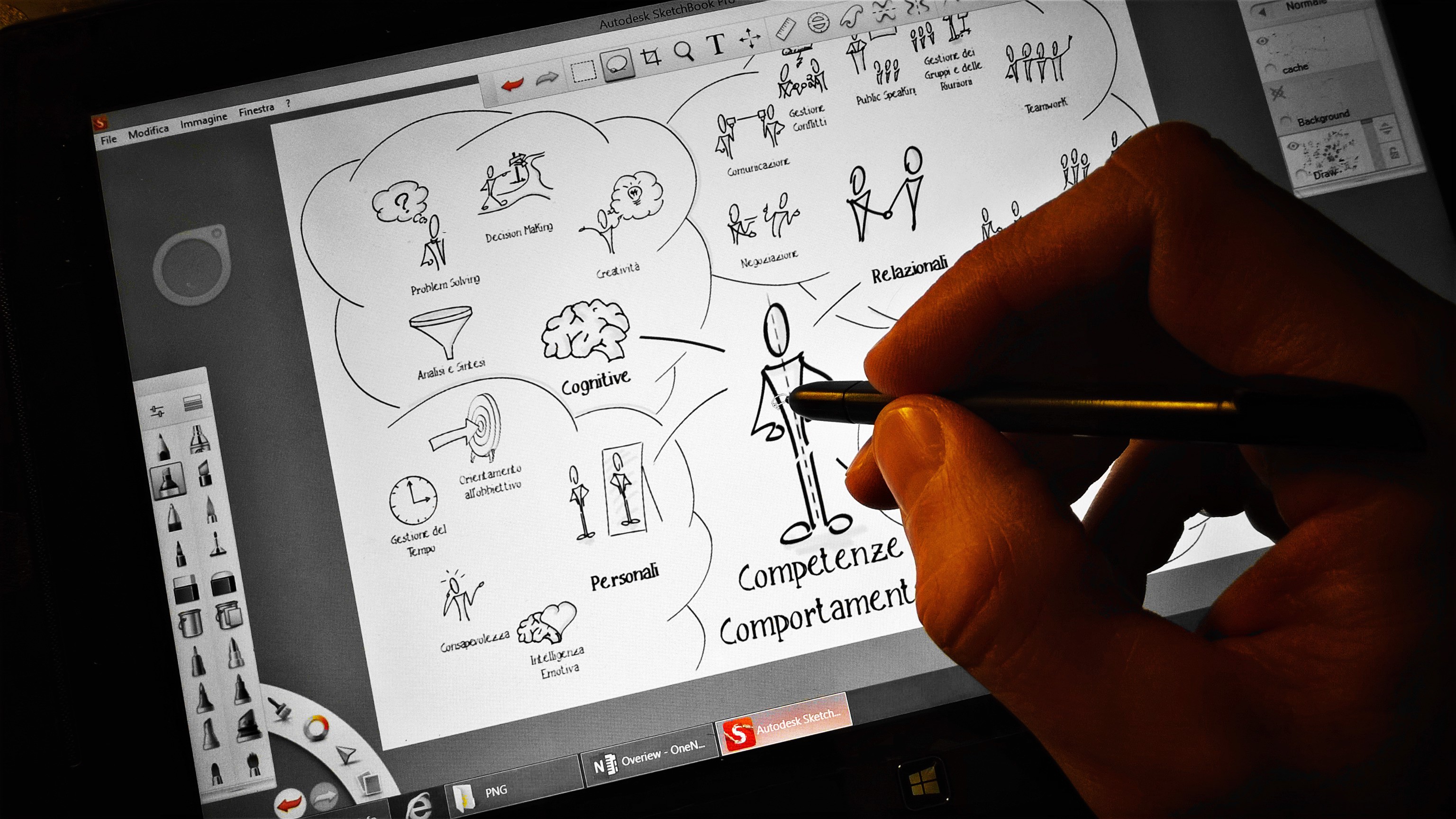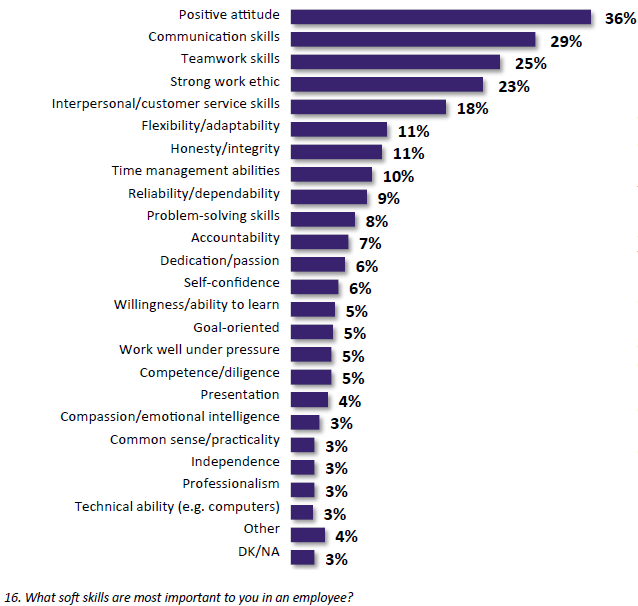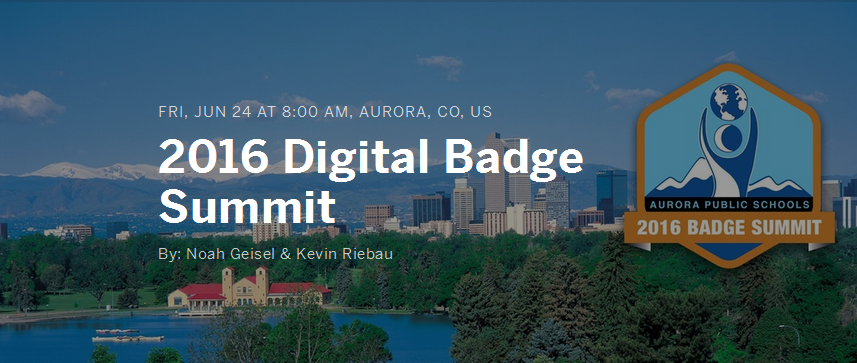
Luigi Mengato CC-BY 2.0
I had a conversation last week with a Canadian colleague, exploring how Open Badges could help youth-serving agencies incorporate “career competencies” into their programming. The ice may finally be breaking up here! I know that we can learn from some exciting initiatives already underway around the world.
Career competencies is her semi-formalized term for what I normally call soft skills: “communication, teamwork, critical thinking etc.” She’s working with a framework that was developed by a Canadian university. There are lots of frameworks out there, which is part of the challenge.
According to my colleague:
These are not easy to accurately assess. But they are necessary!
Boy, is she right – on both counts.
But that’s exactly why I think an “Open Badges aware” solution represents an ideal approach: their simplicity, their modularity, their different degrees of formality, their freedom to traverse contexts… all these make possible a wide array of flexible strategies for the slippery needs of soft skills assessment and recognition.
So I reached out to the Open Badge community asking for leads to the “current state” of Open Badges for soft skills. I got lots and I’ve dug for more.
This blog post starts the discussion.
Why are Soft Skills Important?
The answer is obvious: because employers want them. In fact, they often say they want them more than cognitive and technical skills: “hire for attitude, train for skill.” (Assuming they do train their employees… more later.)
The Canadian Education and Research Institute for Counselling (CERIC) contracted a survey of 500 Canadian business leaders who agreed that “ideal” employees have a good blend of technical and soft skills.
When asked which “soft skills” are most important, they provided this prioritized list of the usual suspects:
I like the long tail, which could help people (at least in Canada) who are designing training and assessment programs and, gosh, badge systems.
“Soft Skills are Hard”
This is a cute title for a recent (ongoing?) Canadian social sciences research study, which so far I’ve only been able to see in four page summary form; the full report is likely still unpublished. More information about “Soft Skills are Hard:” The “Skills Gap” and Importance of “Soft Skills”can be found partway down this page on the funder’s website.
But the summary alone is good. It encapsulates the dialogue around soft skills succinctly. I’ve copied the key messages from the first page verbatim because they so closely align with what I want to talk about over the next few blog posts:
- There is wide agreement that “soft” skills (often termed “professional” or “generic” skills) are among the skills essential to employment across sectors.
- While there is little agreement, however on how specifically these skills are defined.
- While much attention is focused on providing Science Technology Engineering and Math (STEM) graduates with training in soft skills, less attention is focused on Social Sciences and Humanities (SSH) graduates because of an assumption, perhaps mistaken, that these graduates will possess soft skills.
- Employers report a “skills gap” and generally do not feel graduates possess sufficient “soft” skills to perform effectively.
- There are significant differences in the expectations and perceptions of employers and the perceptions of educators and graduates regarding the level of soft skills graduates possess.
- While there are some standardized tests for some soft skills – writing and critical reasoning for example, many soft skills can only be assessed in context and just as there is little agreement on definition, there is little agreement on assessment of these skills.
- There are many stakeholders involved in the development and assessment of soft skills and most agree a combination of formal and informal or experiential learning are required.
- Because of the way in which soft skills are learned, many segments of the population are disadvantaged in access to the coaching, training and role models needed to develop these skills and cultural biases may play a role in the definition and assessment of soft skills. Moreover the boundaries between “skills” and “personality traits or habits” are blurred particularly with respect to interpersonal skills. A diversity lens is critical.
- The lack of consistency in definitions and fragmentation of stakeholders involved in soft skills development compounds the problem and more coordination is needed to develop shared expectations and to bridge the gap between supply and demand.
- More research is needed to systematically assess empirically the ways in which soft skills can be defined, developed and evaluated.
What a wonderful row to hoe for Open Badges, don’t you think?
I love point 3 about STEM vs Humanities graduates. I definitely agree with point 7 that ” a combination of formal and informal or experiential learning are required. ” Point 8’s discussion of accessibility and diversity adds a lot of value to the conversation and should be interesting to the large scale Cities of LRNG initiative in the US, whose mission is to bridge development gaps for underserved populations.
I have a quibble with point 6, and maybe it’s just a question of emphasis: yes, context is important but soft skills are supposed to be transferable. An employer doesn’t say in a behavioural interview “tell me about a time in my specific context”. That’s fodder for “Badges as conversation topics and boundary objects” – more on that point later in a future post, but follow the link to read that interesting article in the original.
I have another quibble with point 9 and maybe it has to do with what’s meant by “coordination” for shared expectations. Because our society is not a totalitarian one, I’m I’m not sure we’re going to get “one framework to rule them all”, although 21st Century Skills is trying. Fragmentation and what to do about it is being discussed right now in this thread of the Open Badges Google Group. But in a later post I’ll be making the point that the evolving Open Badge technology standard provides effective ways to cross boundaries.
But this study makes a great starting point.
Coming Up in Future Posts
I’m chunking this fascinating topic into instalments in an effort to cut down the length of my blog posts.
Here’s what I’ve planned so far for upcoming posts:
- Defining Soft Skills
You want frameworks? We got frameworks. They’re breeding like rabbits. - Assessing and Recognizing Soft Skills
Beyond testing. Authentic forms of recognition. - Education, Training and Development for Soft Skills
How can we teach this and know that we’re teaching it well? What can we teach and what can’t we teach?When do we get out of the way? When does it stop? - Communicating, “Valorizing”, Analyzing Soft Skills
How do we evaluate between different contexts? What’s the impact on career development and productivity? How can we analyze impact across contexts?
Soft Skills and Open Badges: Best Friends Forever. Let’s explore the relationship together.
Closing plug #1: 2016 Digital Badge Summit
I ‘m looking forward to the learning and networking opportunities as I participate and speak at the exciting Digital Badge Summit on June 24th in the greater Denver area, just before the massive ISTE 2016 conference in Denver itself. There’ll be something for everybody there: K12, Higher Ed, Teacher PD, with a stellar group of speakers.
I plan to learn more about Open Badges for soft skills and I’m curating the Hot Topics thread, which will include sessions on Open Badges and ePortfolios, Trust Networks and Digital Badge Futures. If you’re coming, please reach out!
Closing plug #2: Recognize and share learning in a digital world

CanCred.ca is hosted in Canada


